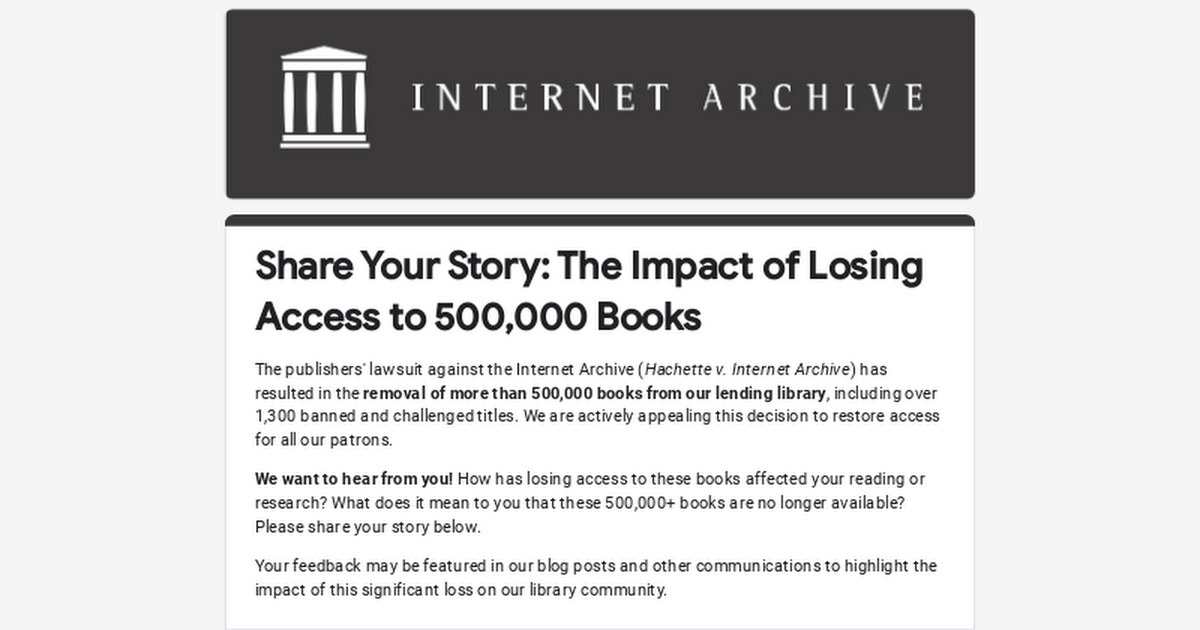

Please inform yourself. In these comments and on their website, it is covered that they do not provide books freely. Just like any other library books can be borrowed exactly as many times as they own a copy.
Just like any other library they sometimes provide a download for Adobe Digital Edition, which manages your lends on books. But as your friend with DRM stripping tools for sure can confirm: DRM is just an annoyance for legitimate customers, it forces legitimate users to use specific applications, while pirates get the freedom to choose how they interact with the not any more protected media. But this is a discussion for another thread as archive.org treats copyrighted books just like any other library.



Yes, I told someone to inform themselves before making assumptions. Which, I think, is a reasonable expectation.
The rest of the comment was pointing out how archive.org acts like any other public library and therefore should not be treated differently. This does not carry hostility against the person I am replying to.